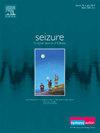影响神经科医生开抗癫痫药物处方的因素:医生履历和患者特征的作用
IF 2.7
3区 医学
Q2 CLINICAL NEUROLOGY
引用次数: 0
摘要
目的虽然医生致力于平等治疗,但在决定如何治疗患者和分配治疗费用时,可能会受到各种非医学因素的影响。本研究探讨了传记因素和患者特征如何影响医生在抗癫痫药物(ASM)处方方面的决定。方法:我们重新分析了先前一项以医生特征为重点的因子研究的队列。小插曲显示一个虚构的癫痫患者(PWE)接受虚构的ASM。PWE、ASM和癫痫的特征各不相同。我们要求神经科医生评估他们给病人开这种药的可能性,并完成一份关于个人特征的调查(包括年龄、性别、生活状况、专业经验和与PWE的接触)。结果共46名神经科医师(年龄37.1±9.6岁,女性占65.2%)完成问卷调查。认为自己处于最佳健康状态或与PWE有私人接触的神经科医生更有可能开出ASM。结论神经科医生的传记和经验影响了他们对ASM治疗处方可能性的决定。本文章由计算机程序翻译,如有差异,请以英文原文为准。
Factors influencing neurologists' prescribing of antiseizure medication: The role of physician biography and patient characteristics
Objective
Although committed to equal treatment, physicians may be influenced by various non-medical factors when deciding how to treat patients and allocate treatment costs. This study examines how biographical factors and patient characteristics influence physicians’ decisions in the context of antiseizure medication (ASM) prescriptions.
Methods
We re-analysed a cohort from a previous factorial study focusing on physicians’ characteristics. Vignettes showed a fictitious person with epilepsy (PWE) receiving a fictitious ASM. The characteristics of the PWE, the ASM and the epilepsy varied. We asked neurologists to rate the likelihood that they would prescribe the drug to the patient, and to complete a survey on personal characteristics (including age, sex, living situation, professional experience and contact with PWE).
Results
46 neurologists (age 37.1 ± 9.6 years, 65.2 % female) completed the questionnaire. Neurologists who rated themselves as being in the best possible health state or who had private contact with PWE were more likely to prescribe ASM.
Conclusion
Neurologists’ biographies and experiences influenced their decisions about the likelihood of prescribing ASM therapy.
求助全文
通过发布文献求助,成功后即可免费获取论文全文。
去求助
来源期刊

Seizure-European Journal of Epilepsy
医学-临床神经学
CiteScore
5.60
自引率
6.70%
发文量
231
审稿时长
34 days
期刊介绍:
Seizure - European Journal of Epilepsy is an international journal owned by Epilepsy Action (the largest member led epilepsy organisation in the UK). It provides a forum for papers on all topics related to epilepsy and seizure disorders.
 求助内容:
求助内容: 应助结果提醒方式:
应助结果提醒方式:


